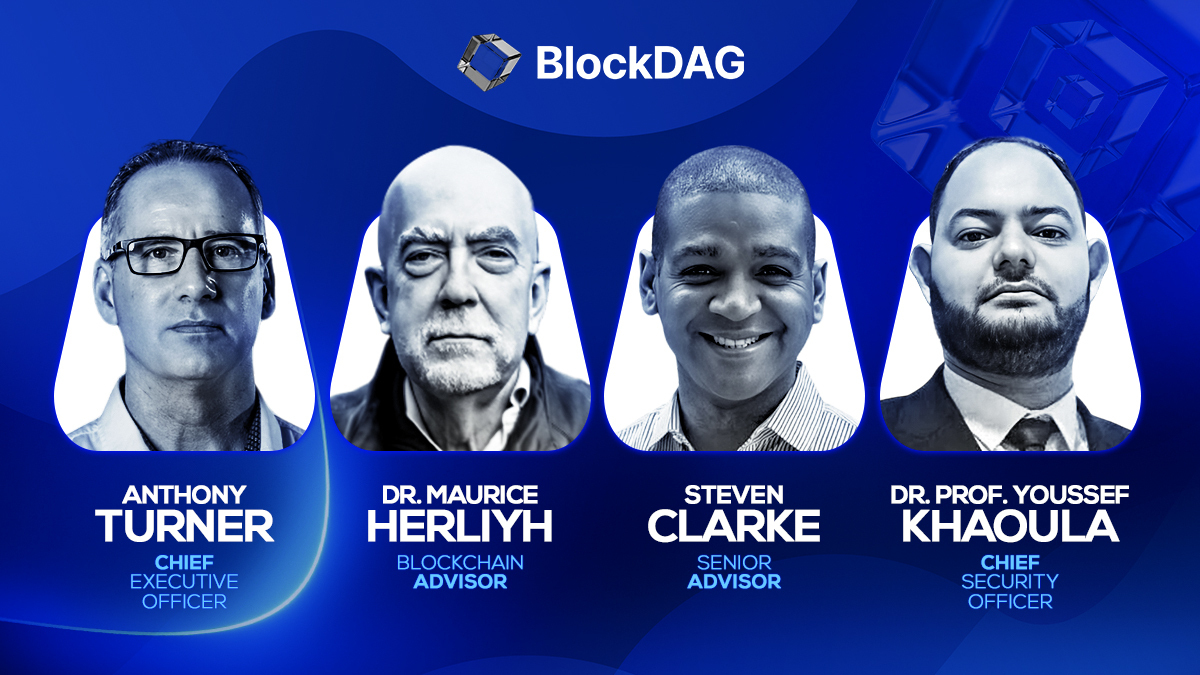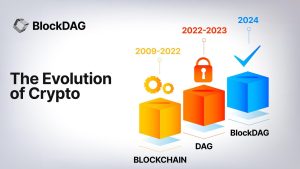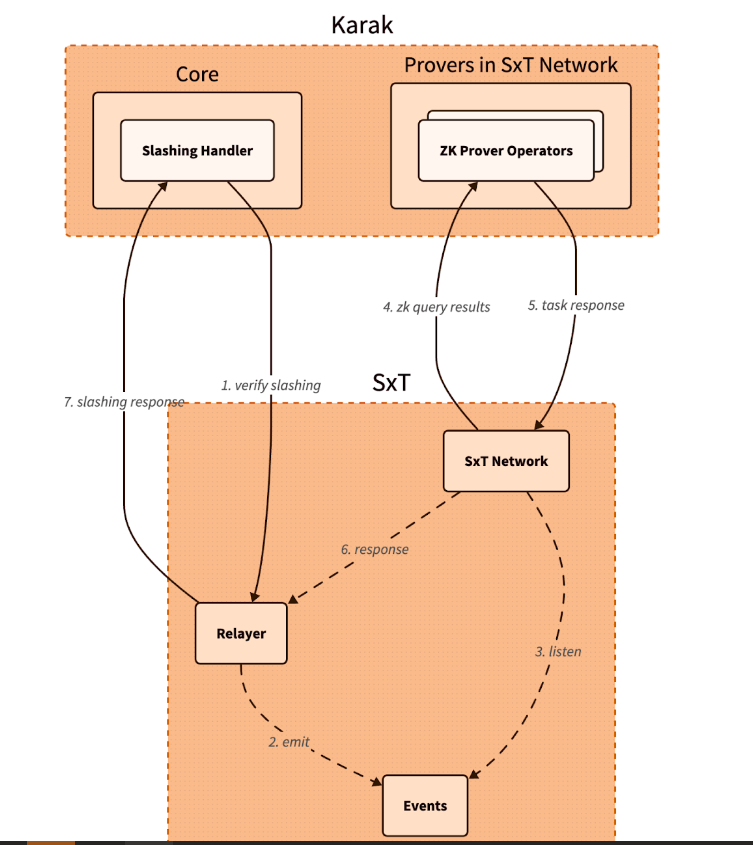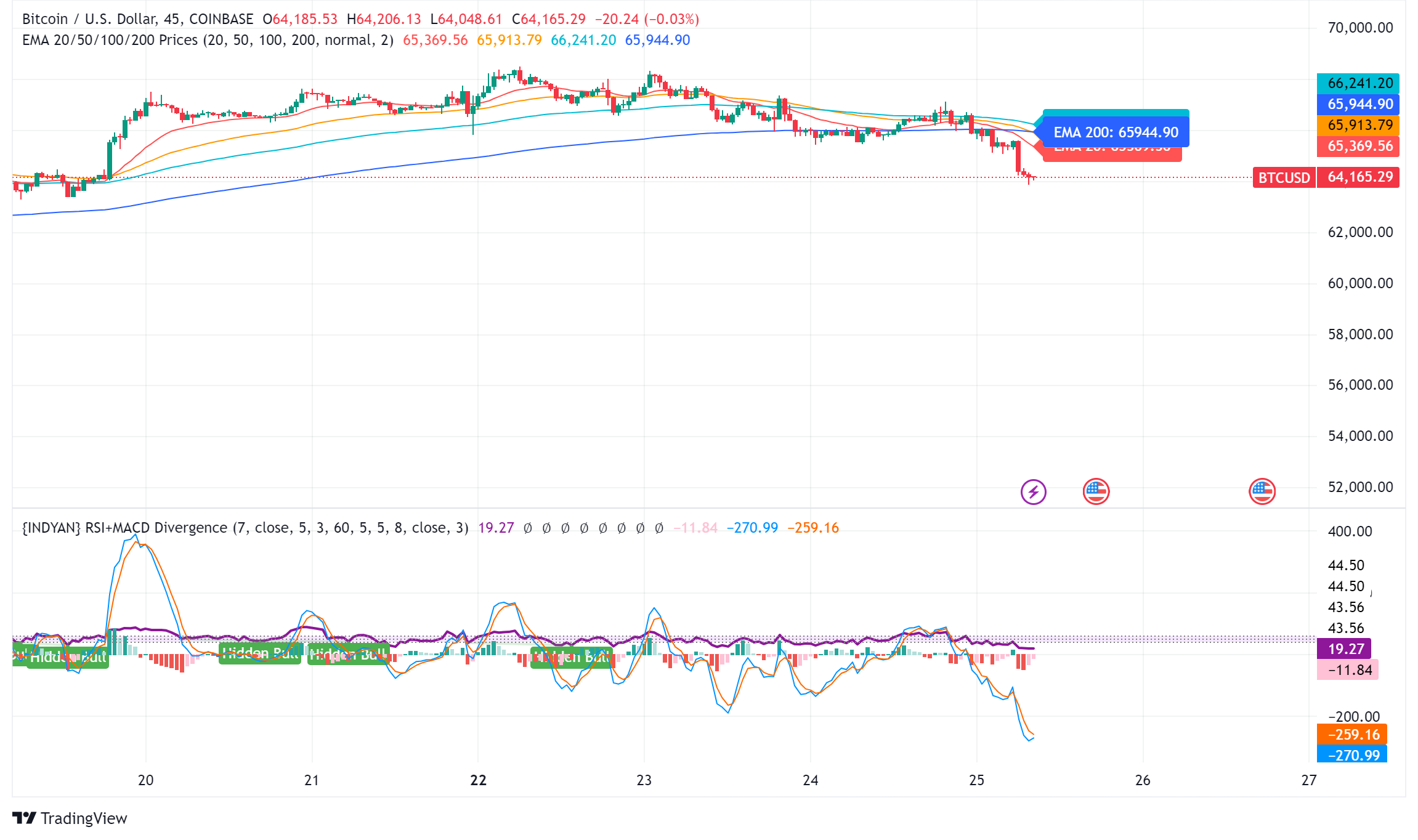Tech
Top 10 Amazing Ways Blockchain Startups Are Leveraging The Tech For Sustainability

The environmental crisis demands innovative solutions, and a new breed of companies is stepping up to the challenge: Blockchain startups. Blockchain technology, with its core features of transparency, immutability, and security, offers a powerful toolkit for promoting sustainability across various sectors. Blockchain startups are harnessing this potential to create solutions: Enhancing Transparency in Sustainable Practices:
The environmental crisis demands innovative solutions, and a new breed of companies is stepping up to the challenge: Blockchain startups. Blockchain technology, with its core features of transparency, immutability, and security, offers a powerful toolkit for promoting sustainability across various sectors.
Blockchain startups are harnessing this potential to create solutions:
Enhancing Transparency in Sustainable Practices: Greenwashing – misleading claims about environmental practices – is a significant hurdle on the path to sustainability. Blockchain startups are bringing much-needed transparency to this issue. By creating a secure, shared ledger that tracks a product’s lifecycle, these startups ensure verifiable data on a product’s eco-friendliness. Consumers can access this information, allowing them to make informed choices that support truly sustainable businesses.
Facilitating Sustainable Sourcing: Blockchain startups are revolutionizing sustainable sourcing practices. For instance, they can track the origin of raw materials, ensuring ethical sourcing and minimizing environmental damage. Imagine a diamond ring where consumers can verify the stone’s origin, eliminating concerns about conflict diamonds and environmental destruction. This empowers businesses to demonstrate their commitment to ethical and sustainable sourcing practices.
Empowering Green Energy Markets: Renewable energy is crucial for a sustainable future, but the market can be complex. Blockchain startups are creating solutions to streamline green energy transactions. Peer-to-peer energy trading platforms powered by blockchain allow individuals with solar panels to sell excess energy back to the grid. This fosters a more decentralized and efficient energy market, promoting wider adoption of renewable sources.
Carbon Emission Tracking and Reduction: Accurately tracking carbon emissions is essential for effective climate action. Blockchain startups offer innovative solutions for carbon footprint management. By creating a secure and transparent system for recording and tracking emissions throughout a supply chain, these startups empower businesses to identify areas for improvement and implement more sustainable practices. Additionally, some blockchain startups are developing carbon credit trading platforms, facilitating the buying and selling of carbon offsets in a transparent and efficient manner.
Also, read- Top 10 Significant Uses of Smart Contract Security In The Blockchain & Web3 World
Examples of Blockchain Startups in Action:
Climate change and environmental degradation are pressing global concerns. While traditional industries grapple with these issues, a new breed of startups is harnessing the transformative power of blockchain technology to promote sustainability across various sectors. Here’s a deep dive into ten remarkable ways blockchain startups are revolutionizing sustainability:
- Carbon Offsetting and Emission Tracking:
-
Problem: Lack of transparency and traceability in carbon offsetting markets. Difficulty in verifying the environmental impact of offset projects.
-
Solution: Blockchain startups like Moss Earth and Regen Network create platforms for transparent carbon offsetting. These platforms utilize tokens to represent verified carbon sequestration projects, such as reforestation initiatives. Individuals and businesses can purchase these tokens, directly funding sustainable practices and tracking the environmental impact of their offsets on the blockchain ledger.
Example: Imagine a company wanting to offset their carbon footprint. They can purchase Moss Earth’s MCO2 tokens, which represent the verified sequestration of carbon dioxide through rainforest preservation projects in the Amazon. The entire transaction is recorded on the blockchain, ensuring transparency and immutability.
- Sustainable Supply Chain Management:
-
Problem: Difficulty in tracking the origin and ethical sourcing of materials within complex supply chains. Limited visibility into environmental practices employed by suppliers.
-
Solution: Blockchain startups like Everledger and B رتبه (pronounced “B Rank”) provide solutions for tracking materials throughout the supply chain. Everledger focuses on diamonds, ensuring ethically sourced gems through blockchain-based records of origin, ownership, and characteristics. B رتبه tracks the journey of sustainable materials like organic cotton, allowing businesses to verify ethical sourcing practices and consumer preferences for eco-friendly products.
Example: Imagine a clothing retailer wanting to source organic cotton for their garments. B رتبه’s platform allows them to trace the cotton’s journey from farm to factory, ensuring it meets their sustainability standards and consumer expectations for eco-friendly clothing.
- Circular Economy and Waste Management:
-
Problem: Inefficiencies in waste management systems. Difficulty in tracking recyclable materials and promoting their reuse within the circular economy.
-
Solution: Blockchain startups like Circulor and VeChain focus on waste management and promoting circularity. Circulor uses blockchain to track and verify the recycling process for materials like plastic, ensuring responsible waste management and facilitating the reintroduction of recycled materials into production processes. VeChain offers solutions for tracking reusable packaging or pallets within supply chains, minimizing waste and promoting efficient reuse models.
Example: Imagine a beverage company wanting to incorporate recycled plastic into their packaging. Circulor’s platform allows them to track the journey of recycled plastic from collection to processing, ensuring the use of genuine recycled materials and promoting responsible waste management practices.
- Renewable Energy Management and Microgrids:
-
Problem: Lack of transparency and traceability in renewable energy markets. Challenges in managing distributed energy sources within microgrids.
-
Solution: Blockchain startups like Power Ledger and SunContract leverage blockchain technology to manage renewable energy sources and microgrids. Power Ledger creates platforms for peer-to-peer energy trading, allowing individuals with solar panels to sell excess energy back to the grid. SunContract focuses on facilitating microgrid management, enabling communities to manage and trade renewable energy locally using blockchain-based solutions.
Example: Imagine a neighborhood with rooftop solar panels generating excess energy. Power Ledger’s platform allows residents to sell this excess energy to their neighbors, promoting local energy exchange and fostering a more sustainable energy ecosystem.
- Sustainable Food Production and Provenance Tracking:
-
Problem: Limited transparency in food supply chains. Difficulty in verifying the origin and sustainable practices employed in food production.
-
Solution: Blockchain startups like Provenance and Tezos Agora focus on traceability within the food industry. Provenance tracks the journey of food products from farm to fork, allowing consumers to access information about the origin, farming practices, and environmental impact of their food choices. Tezos Agora focuses on creating a decentralized marketplace for sustainable food products, empowering consumers to support ethical and environmentally conscious producers.
Example: Imagine a consumer wanting to know the origin of their salmon. Provenance allows them to scan a QR code on the packaging and view information about the farm where the salmon was raised, its processing methods, and its journey to the store shelf, promoting informed and sustainable food choices.
These are just a few examples of how blockchain startups are leading the charge towards a more sustainable future. As the technology matures and adoption widens, we can expect even more innovative solutions to emerge, tackling environmental challenges and fostering a more responsible and eco-conscious way of conducting business across various sectors.
🌐 Understanding Blockchain: The Backbone of Secure Financial Transactions with DiVinciPay 📘💡
In today’s digital age, blockchain technology is revolutionizing the way we handle financial transactions, offering unmatched security, transparency, and efficiency.
Let’s dive into… pic.twitter.com/Jm3Ncj3cJM
— DiVinciPay (@divincipay) March 28, 2024
How Blockchain Startups are Revolutionizing Green Practices:
The fight against climate change and environmental degradation demands innovative solutions. Blockchain startups are emerging as powerful allies, leveraging the technology’s transparency and security to promote sustainability across various industries. Let’s delve deeper into some inspiring examples:
1. Everledger: Shining a Light on Ethical Diamonds
- Industry: Gemstones
- Sustainability Challenge: Diamond fraud, lack of transparency in origin and ethical sourcing practices
Everledger utilizes blockchain technology to track the provenance of diamonds, from mine to market. Each diamond receives a unique and immutable digital identity recorded on the blockchain. This identity stores details like the diamond’s origin, carat weight, cut, clarity, and color grade. This level of detail empowers consumers to make informed choices, ensuring they’re purchasing ethically sourced diamonds and combating the issue of conflict diamonds.
Impact: Everledger fosters trust and transparency in the diamond industry. Consumers gain confidence in the authenticity and ethical sourcing of their purchases. Additionally, the platform empowers law enforcement to track and identify stolen diamonds, deterring theft and illegal activities within the diamond trade.
2. BASF and Transparent: Building a Sustainable Palm Oil Supply Chain
- Industry: Chemicals, Agriculture
- Sustainability Challenge: Deforestation and environmental damage associated with unsustainable palm oil production.
BASF, a leading chemical company, recognizes the environmental impact of palm oil production. To address this, they partnered with Transparent, a blockchain startup, to create a sustainable palm oil supply chain. Transparent’s platform tracks palm oil from plantation to processing facilities, ensuring deforestation-free practices and responsible sourcing.
Impact: This collaboration promotes the use of certified sustainable palm oil (CSPO) across BASF’s supply chain. By tracking palm oil provenance on a transparent and secure blockchain platform, deforestation can be identified and prevented. This fosters responsible sourcing practices within the palm oil industry and contributes to the protection of valuable rainforests.
3. Circulor: Closing the Loop in Plastic Recycling
- Industry: Waste Management, Manufacturing
- Sustainability Challenge: Inefficiencies in plastic recycling, difficulty in tracking and verifying recycled content.
Circular tackles the challenge of plastic waste by leveraging blockchain technology. Their platform tracks the journey of plastic waste, from collection points to recycling facilities and back into production processes. This ensures the authenticity of recycled content and empowers manufacturers to incorporate genuine recycled plastics into their products.
Impact: Circulor promotes a circular economy for plastic, reducing reliance on virgin plastic production and minimizing plastic waste generation. The transparency provided by the blockchain platform fosters responsible waste management practices and incentivizes businesses to adopt sustainable manufacturing processes that utilize recycled materials.
4. Provenance: Farm-to-Fork Transparency in the Food Industry
- Industry: Food and Agriculture
- Sustainability Challenge: Lack of transparency in food supply chains, difficulty in verifying sustainable farming practices.
Provenance empowers consumers to make informed and sustainable food choices. Their blockchain platform tracks the journey of food products from farm to fork, providing consumers with detailed information about the origin, production methods, and environmental impact of their food. This information can include details like water usage, fertilizer application, and animal welfare practices employed by farms.
Impact: Provenance fosters transparency and accountability within the food industry. Consumers gain the knowledge to support sustainable farming practices and businesses are incentivized to adopt eco-friendly methods to meet consumer demands. This creates a positive feedback loop that promotes a more sustainable food system.
These are just a few examples of how blockchain startups are driving the sustainability agenda. The future holds immense potential for this technology to revolutionize various sectors, from promoting ethical sourcing practices to optimizing renewable energy management. As blockchain adoption widens and innovative solutions emerge, we can move towards a more sustainable future for our planet.
The Road Ahead for Blockchain and Sustainability:
The convergence of blockchain technology and sustainability efforts presents a powerful opportunity to combat climate change and promote responsible business practices. As we look towards the horizon, here are some key trends shaping the future of blockchain for sustainability:
Enhanced Traceability and Transparency Across Value Chains:
-
Standardized Protocols: Industry-wide adoption of standardized blockchain protocols will enable seamless tracking of materials and products across complex global supply chains. Imagine a garment containing recycled plastic and ethically sourced cotton. A standardized blockchain protocol would allow for tracking both materials throughout the supply chain, ensuring transparency and responsible sourcing practices.
-
Real-Time Sustainability Data: Blockchain platforms will facilitate real-time collection and analysis of sustainability data. Imagine sensors monitoring water usage on a farm or carbon emissions during manufacturing. This data can be fed directly onto a blockchain ledger, providing valuable insights for businesses to identify areas for improvement and optimize their environmental footprint.
Incentivizing Sustainable Practices and Behavior Change:
-
Tokenization of Sustainability Efforts: Blockchain can be used to create tokenized rewards for sustainable practices. Imagine farmers adopting organic farming methods receiving tokens that can be redeemed for discounts on supplies or access to premium markets. This incentivizes sustainable behavior and fosters a more responsible approach to resource management.
-
Consumer-Driven Demand for Sustainability: Empowered by blockchain-based transparency, consumers will increasingly demand sustainable products and services. Businesses will need to adapt by adopting sustainable practices throughout their operations to meet consumer expectations and remain competitive.
Integration with Emerging Technologies for Broader Impact:
-
Internet of Things (IoT) Integration: Imagine sensors embedded in devices monitoring energy consumption or pollution levels. This data can be integrated with blockchain platforms, providing valuable insights for optimizing energy usage and identifying environmental concerns.
-
Artificial Intelligence (AI) and Big Data Analytics: By applying AI and big data analytics to sustainability data stored on blockchains, businesses can gain a deeper understanding of their environmental impact and develop data-driven strategies for reducing their carbon footprint and promoting sustainable practices.
Addressing Challenges and Enabling Widespread Adoption:
-
Scalability Solutions: Scalability remains a hurdle for widespread adoption of blockchain in sustainability initiatives. Continued development of Layer 2 scaling solutions and sharding protocols will be crucial to handle the ever-increasing volume of data generated within complex global supply chains.
-
Collaboration and Regulatory Frameworks: Effective collaboration between governments, businesses, and environmental organizations is essential to establish clear regulatory frameworks and promote responsible development of blockchain-based sustainability solutions.
A Sustainable Future for All
The future of blockchain and sustainability is brimming with promise. By fostering transparency, incentivizing responsible practices, and integrating with emerging technologies, blockchain has the potential to fundamentally transform how we manage our planet’s resources and build a more sustainable future for generations to come. Overcoming scalability challenges and establishing clear regulations will be crucial for widespread adoption. However, as these hurdles are addressed, blockchain presents a powerful tool for creating a more responsible and environmentally conscious future for all.
In conclusion, blockchain startups are not just tech companies; they are sustainability champions. By leveraging the power of blockchain technology, these innovative companies are making a real difference in the fight for a greener future. Their solutions hold the potential to transform our approach to sustainable sourcing, green energy, and carbon emission reduction, paving the way for a more sustainable world for generations to come.
Tech
Harvard Alumni, Tech Moguls, and Best-Selling Authors Drive Nearly $600 Million in Pre-Order Sales

BlockDAG Network’s history is one of innovation, perseverance, and a vision to push the boundaries of blockchain technology. With Harvard alumni, tech moguls, and best-selling authors at the helm, BlockDAG is rewriting the rules of the cryptocurrency game.
CEO Antony Turner, inspired by the successes and shortcomings of Bitcoin and Ethereum, says, “BlockDAG leverages existing technology to push the boundaries of speed, security, and decentralization.” This powerhouse team has led a staggering 1,600% price increase in 20 pre-sale rounds, raising over $63.9 million. The secret? Unparalleled expertise and a bold vision for the future of blockchain.
Let’s dive into BlockDAG’s success story and find out what the future holds for this cryptocurrency.
The Origin: Why BlockDAG Was Created
In a recent interview, BlockDAG CEO Antony Turner perfectly summed up why the market needs BlockDAG’s ongoing revolution. He said:
“The creation of BlockDAG was inspired by Bitcoin and Ethereum, their successes and their shortcomings.
If you look at almost any new technology, it is very rare that the first movers remain at the forefront forever. Later incumbents have a huge advantage in entering a market where the need has been established and the technology is no longer cutting edge.
BlockDAG has done just that: our innovation is incorporating existing technology to provide a better solution, allowing us to push the boundaries of speed, security, and decentralization.”
The Present: How Far Has BlockDAG Come?
BlockDAG’s presale is setting new benchmarks in the cryptocurrency investment landscape. With a stunning 1600% price increase over 20 presale lots, it has already raised over $63.9 million in capital, having sold over 12.43 billion BDAG coins.
This impressive performance underscores the overwhelming confidence of investors in BlockDAG’s vision and leadership. The presale attracted over 20,000 individual investors, with the BlockDAG community growing exponentially by the hour.

These monumental milestones have been achieved thanks to the unparalleled skills, experience and expertise of BlockDAG’s management team:
Antony Turner – Chief Executive Officer
Antony Turner, CEO of BlockDAG, has over 20 years of experience in the Fintech, EdTech, Travel and Crypto industries. He has held senior roles at SPIRIT Blockchain Capital and co-founded Axona-Analytics and SwissOne. Antony excels in financial modeling, business management and scaling growth companies, with expertise in trading, software, IoT, blockchain and cryptocurrency.
Director of Communications
Youssef Khaoulaj, CSO of BlockDAG, is a Smart Contract Auditor, Metaverse Expert, and Red Team Hacker. He ensures system security and disaster preparedness, and advises senior management on security issues.

advisory Committee
Steven Clarke-Martin, a technologist and consultant, excels in enterprise technology, startups, and blockchain, with a focus on DAOs and smart contracts. Maurice Herlihy, a Harvard and MIT graduate, is an award-winning computer scientist at Brown University, with experience in distributed computing and consulting roles, most notably at Algorand.
The Future: Becoming the Cryptocurrency with the Highest Market Cap in the World
Given its impressive track record and a team of geniuses working tirelessly behind the scenes, BlockDAG is quickly approaching the $600 million pre-sale milestone. This crypto powerhouse will soon enter the top 30 cryptocurrencies by market cap.
Currently trading at $0.017 per coin, BlockDAG is expected to hit $1 million in the coming months, with the potential to hit $30 per coin by 2030. Early investors have already enjoyed a 1600% ROI by batch 21, fueling a huge amount of excitement around BlockDAG’s presale. The platform is seeing significant whale buying, and demand is so high that batch 21 is almost sold out. The upcoming batch is expected to drive prices even higher.

Invest in BlockDAG Pre-Sale Now:
Pre-sale: https://purchase.blockdag.network
Website: https://blockdag.network
Telegram: https://t.me/blockDAGnetwork
Discord: Italian: https://discord.gg/Q7BxghMVyu
No spam, no lies, just insights. You can unsubscribe at any time.
Tech
How Karak’s Latest Tech Integration Could Make Data Breaches Obsolete

- Space and Time uses zero-knowledge proofs to ensure secure and tamper-proof data processing for smart contracts and enterprises.
- The integration facilitates faster development and deployment of Distributed Secure Services (DSS) on the Karak platform.
Karak, a platform known for its strong security capabilities, is enhancing its Distributed Secure Services (DSS) by integrating Space and Time as a zero-knowledge (ZK) coprocessor. This move is intended to strengthen trustless operations across its network, especially in slashing and rewards mechanisms.
Space and Time is a verifiable processing layer that uses zero-knowledge proofs to ensure that computations on decentralized data warehouses are secure and untampered with. This system enables smart contracts, large language models (LLMs), and enterprises to process data without integrity concerns.
The integration with Karak will enable the platform to use Proof of SQL, a new ZK-proof approach developed by Space and Time, to confirm that SQL query results are accurate and have not been tampered with.
One of the key features of this integration is the enhancement of DSS on Karak. DSS are decentralized services that use re-staked assets to secure the various operations they provide, from simple utilities to complex marketplaces. The addition of Space and Time technology enables faster development and deployment of these services, especially by simplifying slashing logic, which is critical to maintaining security and trust in decentralized networks.

Additionally, Space and Time is developing its own DSS for blockchain data indexing. This service will allow community members to easily participate in the network by running indexing nodes. This is especially beneficial for applications that require high security and decentralization, such as decentralized data indexing.
The integration architecture follows a detailed and secure flow. When a Karak slashing contract needs to verify a SQL query, it calls the Space and Time relayer contract with the required SQL statement. This contract then emits an event with the query details, which is detected by operators in the Space and Time network.
These operators, responsible for indexing and monitoring DSS activities, validate the event and route the work to a verification operator who runs the query and generates the necessary ZK proof.
The result, along with a cryptographic commitment on the queried data, is sent to the relayer contract, which verifies and returns the data to the Karak cutter contract. This end-to-end process ensures that the data used in decision-making, such as determining penalties within the DSS, is accurate and reliable.
Karak’s mission is to provide universal security, but it also extends the capabilities of Space and Time to support multiple DSSs with their data indexing needs. As these technologies evolve, they are set to redefine the secure, decentralized computing landscape, making it more accessible and efficient for developers and enterprises alike. This integration represents a significant step towards a more secure and verifiable digital infrastructure in the blockchain space.
Website | X (Twitter) | Discord | Telegram
No spam, no lies, just insights. You can unsubscribe at any time.
Tech
Cryptocurrency Payments: Should CFOs Consider This Ferrari-Approved Trend?

Iconic Italian luxury carmaker Ferrari has announced the expansion of its cryptocurrency payment system to its European dealer network.
The move, which follows a successful launch in North America less than a year ago, raises a crucial question for CFOs across industries: Is it time to consider accepting cryptocurrency as a form of payment for your business?
Ferrari’s move isn’t an isolated one. It’s part of a broader trend of companies embracing digital assets. As of 2024, we’re seeing a growing number of companies, from tech giants to traditional retailers, accepting cryptocurrencies.
This change is determined by several factors:
- Growing mainstream adoption of cryptocurrencies
- Growing demand from tech-savvy and affluent consumers
- Potential for faster and cheaper international transactions
- Desire to project an innovative brand image
Ferrari’s approach is particularly noteworthy. They have partnered with BitPay, a leading cryptocurrency payment processor, to allow customers to purchase vehicles using Bitcoin, Ethereum, and USDC. This satisfies their tech-savvy and affluent customer base, many of whom have large digital asset holdings.
Navigating Opportunities and Challenges
Ferrari’s adoption of cryptocurrency payments illustrates several key opportunities for companies considering this move. First, it opens the door to new customer segments. By accepting cryptocurrency, Ferrari is targeting a younger, tech-savvy demographic—people who have embraced digital assets and see them as a legitimate form of value exchange. This strategy allows the company to connect with a new generation of affluent customers who may prefer to conduct high-value transactions in cryptocurrency.
Second, cryptocurrency adoption increases global reach. International payments, which can be complex and time-consuming with traditional methods, become significantly easier with cryptocurrency transactions. This can be especially beneficial for businesses that operate in multiple countries or deal with international customers, as it potentially reduces friction in cross-border transactions.
Third, accepting cryptocurrency positions a company as innovative and forward-thinking. In today’s fast-paced business environment, being seen as an early adopter of emerging technologies can significantly boost a brand’s image. Ferrari’s move sends a clear message that they are at the forefront of financial innovation, which can appeal to customers who value cutting-edge approaches.
Finally, there is the potential for cost savings. Traditional payment methods, especially for international transactions, often incur substantial fees. Cryptocurrency transactions, on the other hand, can offer lower transaction costs. For high-value purchases, such as luxury cars, these savings could be significant for both the business and the customer.
While the opportunities are enticing, accepting cryptocurrency payments also presents significant challenges that businesses must address. The most notable of these is volatility. Cryptocurrency values can fluctuate dramatically, sometimes within hours, posing potential risk to businesses that accept them as payment. Ferrari addressed this challenge by implementing a system that instantly converts cryptocurrency received into traditional fiat currencies, effectively mitigating the risk of value fluctuations.
Regulatory uncertainty is another major concern. The legal landscape surrounding cryptocurrencies is still evolving in many jurisdictions around the world. This lack of clear and consistent regulations can create compliance challenges for companies, especially those operating internationally. Companies must remain vigilant and adaptable as new laws and regulations emerge, which can be a resource-intensive process.
Implementation costs are also a significant obstacle. Integrating cryptocurrency payment systems often requires substantial investment in new technology infrastructure and extensive staff training. This can be especially challenging for small businesses or those with limited IT resources. The costs are not just financial; a significant investment of time is also required to ensure smooth implementation and operation.
Finally, security concerns loom large in the world of cryptocurrency transactions. While blockchain technology offers some security benefits, cryptocurrency transactions still require robust cybersecurity measures to protect against fraud, hacks, and other malicious activity. Businesses must invest in robust security protocols and stay up-to-date on the latest threats and protections, adding another layer of complexity and potential costs to accepting cryptocurrency payments.
Strategic Considerations for CFOs
If you’re thinking of following in Ferrari’s footsteps, here are the key factors to consider:
- Risk Assessment: Carefully evaluate potential risks to your business, including financial, regulatory, and reputational risks.
- Market Analysis: Evaluate whether your customer base is significantly interested in using cryptocurrencies for payments.
- Technology Infrastructure: Determine the costs and complexities of implementing a cryptographic payment system that integrates with existing financial processes.
- Regulatory Compliance: Ensure that cryptocurrency acceptance is in line with local regulations in all markets you operate in. Ferrari’s gradual rollout demonstrates the importance of this consideration.
- Financial Impact: Analyze how accepting cryptocurrency could impact your cash flow, accounting practices, and financial reporting.
- Partnership Evaluation: Consider partnering with established crypto payment processors to reduce risk and simplify implementation.
- Employee Training: Plan comprehensive training to ensure your team is equipped to handle cryptocurrency transactions and answer customer questions.
While Ferrari’s adoption of cryptocurrency payments is exciting, it’s important to consider this trend carefully.
A CFO’s decision to adopt cryptocurrency as a means of payment should be based on a thorough analysis of your company’s specific needs, risk tolerance, and strategic goals. Cryptocurrency payments may not be right for every business, but for some, they could provide a competitive advantage in an increasingly digital marketplace.
Remember that the landscape is rapidly evolving. Stay informed about regulatory changes, technological advancements, and changing consumer preferences. Whether you decide to accelerate your crypto engines now or wait in the pit, keeping this payment option on your radar is critical to navigating the future of business transactions.
Was this article helpful?
Yes No
Sign up to receive your daily business insights
Tech
Bitcoin Tumbles as Crypto Market Selloff Mirrors Tech Stocks’ Plunge

The world’s largest cryptocurrency, Bitcoin (BTC), suffered a significant price decline on Wednesday, falling below $65,000. The decline coincides with a broader market sell-off that has hit technology stocks hard.
Cryptocurrency Liquidations Hit Hard
CoinGlass data reveals a surge in long liquidations in the cryptocurrency market over the past 24 hours. These liquidations, totaling $220.7 million, represent forced selling of positions that had bet on price increases. Bitcoin itself accounted for $14.8 million in long liquidations.
Ethereum leads the decline
Ethereal (ETH), the second-largest cryptocurrency, has seen a steeper decline than Bitcoin, falling nearly 8% to trade around $3,177. This decline mirrors Bitcoin’s price action, suggesting a broader market correction.
Cryptocurrency market crash mirrors tech sector crash
The cryptocurrency market decline appears to be linked to the significant losses seen in the U.S. stock market on Wednesday. Stock market listing The index, heavily weighted toward technology stocks, posted its sharpest decline since October 2022, falling 3.65%.
Analysts cite multiple factors
Several factors may have contributed to the cryptocurrency market crash:
- Tech earnings are underwhelming: Earnings reports from tech giants like Alphabet are disappointing (Google(the parent company of), on Tuesday, triggered a sell-off in technology stocks with higher-than-expected capital expenditures that could have repercussions on the cryptocurrency market.
- Changing Political Landscape: The potential impact of the upcoming US elections and changes in Washington’s policy stance towards cryptocurrencies could influence investor sentiment.
- Ethereal ETF Hopes on the line: While bullish sentiment around a potential U.S. Ethereum ETF initially boosted the market, delays or rejections could dampen enthusiasm.
Analysts’ opinions differ
Despite the short-term losses, some analysts remain optimistic about Bitcoin’s long-term prospects. Singapore-based cryptocurrency trading firm QCP Capital believes Bitcoin could follow a similar trajectory to its post-ETF launch all-time high, with Ethereum potentially converging with its previous highs on sustained institutional interest.
Rich Dad Poor Dad Author’s Prediction
Robert Kiyosaki, author of the best-selling Rich Dad Poor Dad, predicts a potential surge in the price of Bitcoin if Donald Trump is re-elected as US president. He predicts a surge to $105,000 per coin by August 2025, fueled by a weaker dollar that is set to boost US exports.
BTC/USD Technical Outlook
Bitcoin price is currently trading below key support levels, including the $65,500 level and the 100 hourly moving average. A break below the $64,000 level could lead to further declines towards the $63,200 support zone. However, a recovery above the $65,500 level could trigger another increase in the coming sessions.
-

 Videos1 month ago
Videos1 month agoAbsolutely massive: the next higher Bitcoin leg will shatter all expectations – Tom Lee
-

 News12 months ago
News12 months agoVolta Finance Limited – Director/PDMR Shareholding
-

 News12 months ago
News12 months agoModiv Industrial to release Q2 2024 financial results on August 6
-

 News12 months ago
News12 months agoApple to report third-quarter earnings as Wall Street eyes China sales
-

 News12 months ago
News12 months agoNumber of Americans filing for unemployment benefits hits highest level in a year
-

 News1 year ago
News1 year agoInventiva reports 2024 First Quarter Financial Information¹ and provides a corporate update
-

 News1 year ago
News1 year agoLeeds hospitals trust says finances are “critical” amid £110m deficit
-

 Markets1 year ago
Markets1 year agoWhale Investments in Bitcoin Hit $100 Billion in 2024, Fueling Insane Investor Optimism ⋆ ZyCrypto
-

 DeFi1 year ago
DeFi1 year ago🏴☠️ Pump.Fun operated by Insider Exploit
-

 Videos1 year ago
Videos1 year ago$1,000,000 worth of BTC in 2025! Get ready for an UNPRECEDENTED PRICE EXPLOSION – Jack Mallers
-

 Videos1 year ago
Videos1 year agoABSOLUTELY HUGE: Bitcoin is poised for unabated exponential growth – Mark Yusko and Willy Woo
-

 Tech1 year ago
Tech1 year agoBlockDAG ⭐⭐⭐⭐⭐ Review: Is It the Next Big Thing in Cryptocurrency? 5 questions answered





